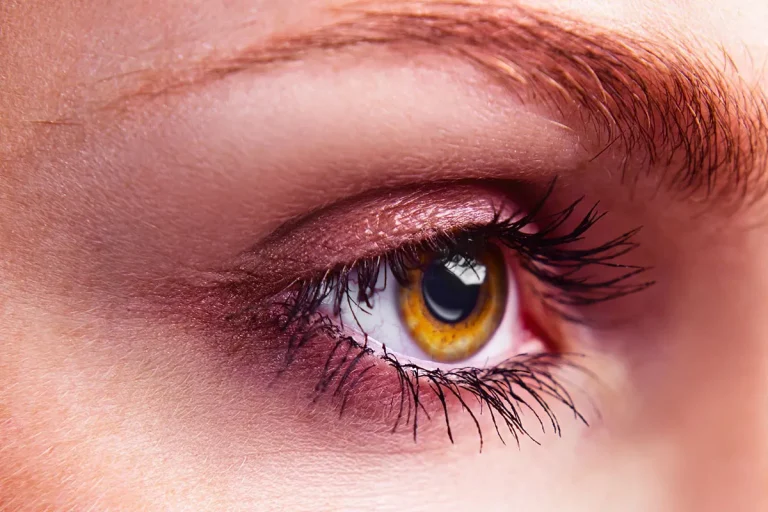Lip biting is a common habit, but is there more meaning behind it? In this comprehensive guide, we’ll explore the psychology, body language, and potential meanings behind why people bite their lips.
If you’re short on time, here’s a quick answer: Lip biting can signify nervousness, discomfort, flirtation, deep thought, or can simply be an absent-minded habit.
We’ll cover the context behind lip bites, how to interpret them, cultural differences, if certain lip bites are involuntary or not, the science behind it, and much more.
The Context Behind Lip Biting
Have you ever wondered why people bite their lips? Lip biting is a common behavior that can occur in various contexts and situations. Understanding the reasons behind this action can provide valuable insights into human behavior and emotions.
When Lip Biting Happens
Lip biting can happen in both conscious and unconscious ways. Some individuals may bite their lips when they are feeling nervous, anxious, or stressed. It can also occur as a reflexive response to physical discomfort or pain.
Additionally, lip biting can be a way of expressing emotions such as desire, anticipation, or frustration. In romantic or sexual situations, lip biting can be seen as a seductive gesture, conveying a sense of attraction and intimacy.
Common Triggers and Situations
There are several common triggers and situations that may lead to lip biting. Stressful events, such as public speaking or job interviews, can cause individuals to bite their lips as a way of coping with anxiety.
In social interactions, lip biting can occur when someone is trying to suppress their emotions or prevent themselves from saying something they may regret. It can also be a sign of nervousness or self-consciousness.
Furthermore, some people may develop a habit of lip biting as a form of self-soothing or self-stimulation. This behavior can become ingrained and occur even in non-stressful situations.
Lip Biting vs. Lip Licking
While lip biting and lip licking may seem similar, they have distinct meanings and implications. Lip biting is often associated with tension, anxiety, or suppressed emotions, whereas lip licking can be a sign of arousal, flirtation, or simply a way to moisten the lips.
It is important to note that everyone’s behaviors and interpretations may vary, and context plays a crucial role in understanding the true meaning behind lip biting or lip licking.
Gender Differences
There is some evidence to suggest that lip biting may be more prevalent in women compared to men. However, it is crucial to approach this observation with caution, as individual differences and cultural factors can heavily influence behavior.
Research indicates that women may engage in lip biting as a way to signal attraction or to appear more feminine and desirable. However, it is important to remember that these findings are not definitive and should not be generalized to all individuals.
Understanding the context behind lip biting can shed light on our emotions, behaviors, and interpersonal dynamics. Whether it is a reflexive response to stress or a subtle form of communication, the act of biting our lips can reveal more about ourselves than we might realize.
Interpreting Lip Bites
Have you ever found yourself wondering what someone’s lip biting means? It’s a common gesture that may have various interpretations depending on the context and individual. Let’s explore some of the possible meanings behind lip biting.
Nervousness or Discomfort
One of the most common reasons people bite their lips is when they are feeling nervous or uncomfortable. It can be an unconscious habit that helps them cope with anxiety or stress. When someone is biting their lip in this context, it’s important to approach them with empathy and understanding.
Flirtation and Attraction
Lip biting can also be a subtle form of flirtation and attraction. When someone bites their lip while making eye contact with you, it could be a sign that they are interested in you. It’s a nonverbal cue that can communicate desire and playfulness. However, it’s important to note that lip biting alone shouldn’t be taken as a definitive indicator of someone’s interest.
Deep Thought and Concentration
Sometimes, lip biting can indicate deep thought and concentration. When someone is focusing intently on a task or trying to come up with a solution, they may unconsciously bite their lip. It’s a way for them to channel their energy and stay focused. So, if you notice someone biting their lip while working or studying, it could mean that they are fully engaged in their thoughts.
Absentminded Habit
Lastly, lip biting can also be an absentminded habit that people develop over time. It may not have any specific meaning in these cases but rather be a reflexive action. Some individuals find comfort in biting their lip without any emotional or cognitive significance. It’s just a part of their routine or habit.
Remember, interpreting lip bites is not an exact science. It’s essential to consider the context, individual, and other nonverbal cues when trying to understand what someone’s lip biting may mean. Communication is key, so if you’re unsure about someone’s intentions, it’s always best to ask directly and have an open conversation.
Cultural Differences
1. Lip Biting as a Sign of Attraction
Lip biting is a gesture that has different meanings in different cultures. In some cultures, it is seen as a sign of attraction or flirtation. When someone bites their lip, it can be interpreted as a subtle way of expressing interest or desire. This gesture is often used in romantic or intimate situations to convey a certain level of attraction.
2. Lip Biting as a Nervous Habit
On the other hand, lip biting can also be a nervous habit that varies across cultures. In certain cultures, individuals may bite their lips when they are anxious, stressed, or feeling uncomfortable. It serves as a way to release tension or redirect nervous energy. This habit can be observed in both social and professional settings, where individuals may find themselves in unfamiliar or challenging situations.
3. Lip Biting as a Cultural Norm
In some cultures, lip biting may be a cultural norm or a learned behavior. It can be a way of expressing emotions such as frustration, anger, or excitement. In certain societies, lip biting may be more common and accepted as a normal part of communication. This cultural variation highlights the importance of understanding different cultural cues and gestures when interacting with individuals from diverse backgrounds.
4. Lip Biting and Body Language
It’s important to note that while lip biting can have cultural meanings, it is also a part of body language. Body language includes a variety of non-verbal cues, such as facial expressions, gestures, and posture, that communicate messages without the use of words. Lip biting can be one such cue, and its meaning can vary depending on the context and the individual’s overall body language. It’s crucial to consider the full range of body language signals to accurately interpret someone’s intentions or emotions.
Involuntary vs. Voluntary Lip Biting
Tourette’s Syndrome
One possible reason behind involuntary lip biting is Tourette’s syndrome. Tourette’s syndrome is a neurological disorder characterized by repetitive, involuntary movements and vocalizations called tics. These tics can manifest as eye blinking, head jerking, and yes, even lip biting. People with Tourette’s syndrome often experience an irresistible urge to perform these tics, and suppressing them can be challenging. If you or someone you know exhibits involuntary lip biting along with other tics, it might be worth seeking medical advice to explore the possibility of Tourette’s syndrome.
Lesch-Nyhan Syndrome
Another rare condition associated with involuntary lip biting is Lesch-Nyhan syndrome. Lesch-Nyhan syndrome is a genetic disorder that primarily affects males. It is characterized by self-destructive behaviors such as lip and finger biting, as well as a range of other symptoms including intellectual disability and neurological abnormalities. The exact cause of Lesch-Nyhan syndrome is still not fully understood, but it is believed to be related to a deficiency of the enzyme hypoxanthine-guanine phosphoribosyltransferase (HPRT). If you suspect that you or someone you know may have Lesch-Nyhan syndrome, it is important to consult with a healthcare professional for proper diagnosis and management.
It is important to note that while involuntary lip biting can be a symptom of these conditions, not everyone who bites their lip necessarily has Tourette’s syndrome or Lesch-Nyhan syndrome. In many cases, lip biting can be a voluntary habit or a response to stress or anxiety. If you are unsure about the cause of your lip biting, it is always a good idea to consult with a healthcare professional for a proper evaluation.
The Science Behind Lip Biting
Have you ever caught yourself biting your lip when you’re deep in thought or feeling anxious? You’re not alone. Lip biting is a common behavior that has been observed in many individuals. But what is the science behind this seemingly harmless habit? Let’s delve into the fascinating world of lip biting and explore some possible explanations.
Oral Fixation
One possible reason behind lip biting is related to what psychologists call an oral fixation. This refers to a subconscious desire to orally stimulate ourselves as a way of seeking comfort or relieving tension. According to Sigmund Freud, the renowned psychoanalyst, oral fixations are common during childhood development and can persist into adulthood. So, when you find yourself biting your lip, it could be a manifestation of this deeply ingrained oral fixation.
Pacifying Oneself
Another theory suggests that lip biting is a form of self-soothing or self-pacifying behavior. Similar to how some individuals may suck their thumb or twirl their hair when feeling stressed, biting the lip may provide a sense of comfort or relief. By engaging in this behavior, we may be instinctively trying to calm ourselves down and cope with difficult emotions or situations. It’s a way of providing ourselves with a temporary distraction or outlet for pent-up anxiety.
Increase in Cortisol
Research has also shown a potential link between lip biting and an increase in cortisol levels. Cortisol, often referred to as the stress hormone, is released by the body in response to stress or anxiety. When we experience heightened levels of stress, our body’s natural response is to release cortisol, which can have a range of effects on our physical and mental well-being. Some studies suggest that lip biting may trigger the release of cortisol, providing a physiological explanation for why we engage in this behavior when we’re feeling stressed or overwhelmed.
While lip biting may seem like a harmless habit, it’s important to be mindful of excessive or compulsive lip biting, as it could potentially lead to negative consequences such as lip damage or infections. If you find yourself frequently biting your lip to the point of pain or injury, it may be worth seeking professional help to address any underlying issues or find healthier coping mechanisms.
Remember, understanding the science behind lip biting can help us gain insight into our own behaviors and provide a basis for further research and exploration. So, the next time you catch yourself biting your lip, take a moment to reflect on what might be going on beneath the surface. It’s just another fascinating aspect of the complex human psyche!
Conclusion
Lip biting can have many subtle meanings, depending on context. While it may simply be an absentminded habit for some, it can also signal nervousness, attraction, or concentration in different situations. There are even some involuntary medical reasons behind constant lip biting.
By paying attention to when and why lip biting occurs, you can better interpret the meaning behind this common gesture.






